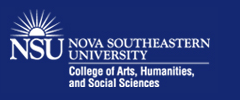Abstract
Following the 1998 Belfast/Good Friday Agreement many community-based organizations became involved in localized peace-building activities in Northern Ireland and the Border Counties. Drawing financial support from the EU Programme for Peace and Reconciliation and the International Fund for Ireland, these organizations adopted various strategic mechanisms to implement their projects –synchronizing bottom-up development initiatives with top-level government policies. Their effectiveness has already been felt in Northern Ireland as reduced political violence and improved socioeconomic conditions. However, the long-term sustainability of this work is questionable, affected as it is by continued intercommunity segregation, low macro-level political support, and global economic instability. This article explores the perceptions of 120 civil society leaders regarding the peace-building practices employed by community-based organizations in Northern Ireland and the Border Counties. Key elements of an effective peace-building model are suggested that may contribute to the improvement of peace-building and reconciliation efforts in other contexts affected by ethno-political conflict.
Author Bio(s)
Lieutenant Colonel (Retd) Kawser Ahmed is a PACS PhD candidate at the Mauro Centre for Peace and Justice, St. Paul’s College, University of Manitoba. His research interest is in Faith Based Organisations and peacebuilding. He earned an M.Phil. degree in PACS from the University of Dhaka Bangladesh. He is also a graduate of the Defence Services Command and Staff College, Bangladesh and he has served in the Bangladesh army’s UN peacekeeping mission in Western Sahara. He is also an alumnus of the National Defence University, Washington D.C.
Sean Byrne is Professor and Director of the PhD and Joint MA Programs in Peace and Conflict Studies (PACS), and Executive Director, Arthur V. Mauro Centre for Peace and Justice, St. Paul’s College, University of Manitoba. His current research interests include: ethnic conflict resolution, economic aid and peacebuilding in protracted ethnic conflict, children and war, women and peacebuilding, and third party intervention. Email: James.Byrne@umanitoba.ca
Julie Marie Hyde is a PACS PhD student at the Mauro Centre for Peace and Justice, St. Paul’s College, University of Manitoba. She holds a BA Honours in Peace Studies/Women’s Studies from McMaster University (Ontario, Canada) and MA in Peace Education from the University for Peace (Costa Rica). Her research interests include: critical pedagogy and peace education; education in emergencies; education system restoration in post-emergency contexts; and education services for Aboriginal students in Canada.
Peter Karari is a PACS PhD candidate at the Mauro Centre for Peace and Justice, St. Paul’s College, University of Manitoba. His areas of interest include: ethnopolitical violence, transitional justice, peacebuilding and human rights. His doctoral research is on ethnopolitical violence, transitional justice and peacebuilding in Kenya. He earned a Bachelor in Social-Work from the University of Nairobi in Kenya and a Masters in PACS from Otto-von Guericke University in Magdeburg Germany.
Olga Skarlato is a PACS PhD candidate at the Mauro Centre for Peace and Justice, St. Paul’s College, University of Manitoba. Skarlato earned a BA and an MA degree in North American Studies from the School of International Relations, St. Petersburg State University, Russia. Skarlato also studied and worked in Germany, the USA and Canada doing research on environmental conflict resolution and prevention, human security and international economic development.
Keywords
effective peace-building practice, European Union Programme for Peace and Reconciliation, grassroots peacebuilding, International Fund for Ireland (IFI), Northern Ireland and the Border Counties, external economic assistance
Recommended Citation
Skarlato, Olga; Byrne, Sean; Ahmed, Kawser; Hyde, Julie Marie; and Karari, Peter
(2013)
"Grassroots Peacebuilding in Northern Ireland and the Border Counties: Elements of An Effective Model,"
Peace and Conflict Studies: Vol. 20:
No.
1, Article 1.
DOI: 10.46743/1082-7307/2013.1142
Available at:
https://nsuworks.nova.edu/pcs/vol20/iss1/1


